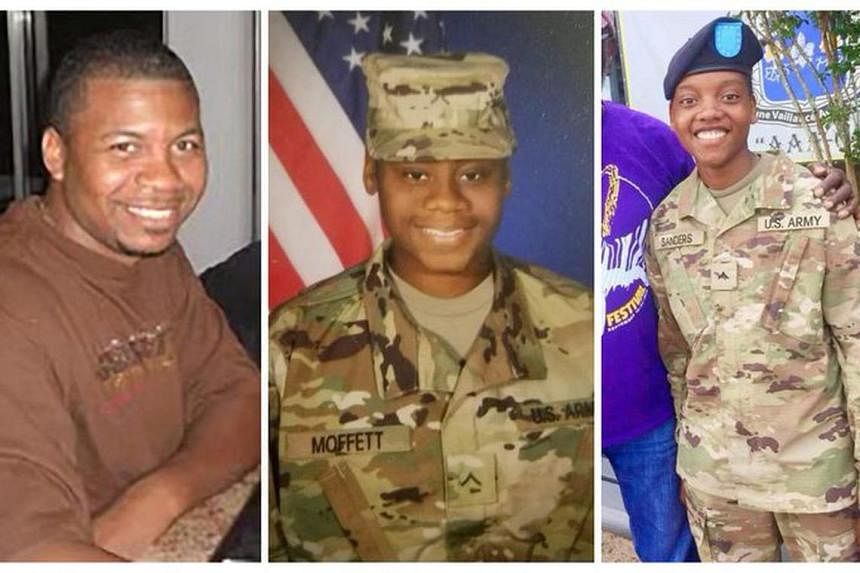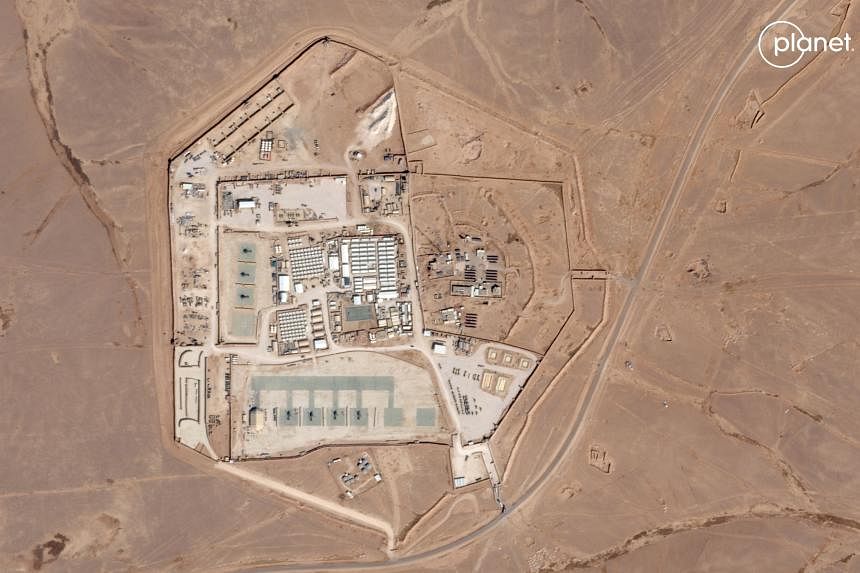WASHINGTON – The United States is expected to intensify military strikes in the Middle East to signal that Iran and its proxies have crossed the line with a drone attack that killed three American soldiers.
But a direct hit on Iranian soil, which would send tensions soaring around the world, remains unlikely.
After the Jan 28 attack by Iran-backed militants on a US military base in north-eastern Jordan that also injured more than two dozen servicemen, the Biden administration is under pressure to send a sharp message to Iran.
Teheran has officially denied any connection to the attack, for which the Islamic Resistance in Iraq, a loose-knit network of pro-Iranian militias, has claimed responsibility.
“This is an incredibly volatile time in the Middle East,” US Secretary of State Antony Blinken said in Washington on Jan 29, after meeting visiting Nato chief Jens Stoltenberg.
“I would argue that we’ve not seen a situation as dangerous as the one we’re facing now across the region since at least 1973, and arguably even before that,” Mr Blinken said.
His reference was to the bloody Arab-Israeli Yom Kippur War, which drew the US and Soviet Union close to a confrontation.
While President Joe Biden held meetings with his top advisers and did not make any public comments, Mr Blinken said the US would respond decisively, without giving specifics.
“That response could be multi-levelled, come in stages and be sustained over time,” he said.
As Republicans in Congress kept up calls for a stiff response, including direct strikes on Iran, defence analysts pointed out that the Biden White House had a track record of the “cautious use of force”.
A reckoning is inevitable as the US contends with an Iran that is increasingly challenging American presence in the Middle East, including thousands of troops stationed in Iraq, Jordan and Syria.
The militant groups that owned up to the attack called it a “continuation of our approach to resisting the American occupation forces in Iraq and the region”.
The Houthi militants in Yemen, also backed by Iran, have fired at US warships and disrupted international shipping along the Red Sea.
“We have three levers we can pull to signal that Iran and its proxies have crossed the line,” said Dr Raphael Cohen at the defence-focused Rand think-tank in Washington.
“You could escalate in terms of the intensity of attacks as a sign of increased American resolve. You can shift the nature of the targets to higher-level militant group leaders,” he added.
“Or you can shift the geographical location of the strike. This is what some Republican senators have talked about, striking Iran proper.”

Of the three options, attacking Iran is the least likely, said Dr Cohen, who is director of the strategy and doctrine programme at Rand’s Project Air Force, which advises the Pentagon.
“But you can imagine some combination of the other two.”
Targets being talked about in the US media include Iranian shipping or factories where arms supplied to militias are manufactured.
Strikes on Iranian paramilitary Quds Force, which supports and trains militias in Syria, Iraq and Yemen, also cannot be discounted.
“Whatever retaliation the US decides on, the objective is to establish deterrence such that those groups think twice about striking American forces in the future,” Dr Cohen said.
An escalation is on the cards and the White House needs to set the stage for it, he added, pointing out that between 150 and 170 attacks have been launched on American forces stationed in the Middle East since the Oct 7 Hamas attack on Israel.
“The fact that Americans have not been killed before is a testament to American air defences and, frankly, good luck. Not the lack of intent by the Iranians,” Dr Cohen noted.
“The question is what to do to stop them. So yes, there’s an escalation in response, but whatever action the US takes needs to be viewed in that lens,” he added.
“There’s an important framing issue here that needs to be communicated.”
A broad regional war remains unlikely, according to Dr Jon Alterman, director of the Middle East programme at the Centre for Strategic and International Studies.
“Instead, both sides are likely to probe to discover each other’s red lines, creating a steadier beat of reciprocal violence over the coming months rather than a sudden eruption,” he said in a note.
One reason the White House did not want to hit Iran harder, Dr Alterman said, was that it wanted to broker another temporary ceasefire in Gaza, which would lower the regional temperature and rebuild cooperation with US allies in the region.
But domestic politics is also a factor. Mr Biden’s critics in Congress say his policies have deflated American deterrence in the Middle East, leaving the US susceptible to more attacks.
Senate Minority Leader Mitch McConnell called for inflicting “crippling costs” on Iran, while his fellow Republican, Senator John Cornyn, demanded strikes on Iran’s Islamic Revolutionary Guard Corps, the custodians of the regime and the country’s nuclear programme.
The conservative Wall Street Journal said in an editorial that Mr Biden’s vow to “hold all those responsible to account at a time and in a manner of our choosing” rang increasingly hollow.
“The sorry truth is that these casualties are the result of the President’s policy choices,” it said.
Mr Biden, who is seeking a second term in the Nov 5 presidential election, has pulled his punches with Iran to avoid fanning the flames in the region.
But he cannot be seen to be weak after the loss of American lives. He may not want an escalation, but he may not be able to avoid it.


